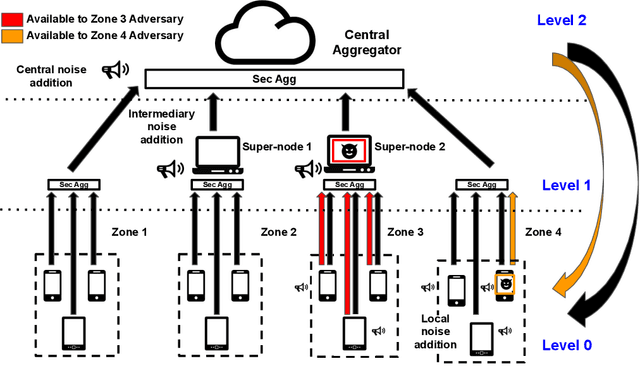Hierarchical Federated Learning with Privacy
Paper and Code
Jun 10, 2022



Federated learning (FL), where data remains at the federated clients, and where only gradient updates are shared with a central aggregator, was assumed to be private. Recent work demonstrates that adversaries with gradient-level access can mount successful inference and reconstruction attacks. In such settings, differentially private (DP) learning is known to provide resilience. However, approaches used in the status quo (\ie central and local DP) introduce disparate utility vs. privacy trade-offs. In this work, we take the first step towards mitigating such trade-offs through {\em hierarchical FL (HFL)}. We demonstrate that by the introduction of a new intermediary level where calibrated DP noise can be added, better privacy vs. utility trade-offs can be obtained; we term this {\em hierarchical DP (HDP)}. Our experiments with 3 different datasets (commonly used as benchmarks for FL) suggest that HDP produces models as accurate as those obtained using central DP, where noise is added at a central aggregator. Such an approach also provides comparable benefit against inference adversaries as in the local DP case, where noise is added at the federated clients.
 Add to Chrome
Add to Chrome Add to Firefox
Add to Firefox Add to Edge
Add to Edge